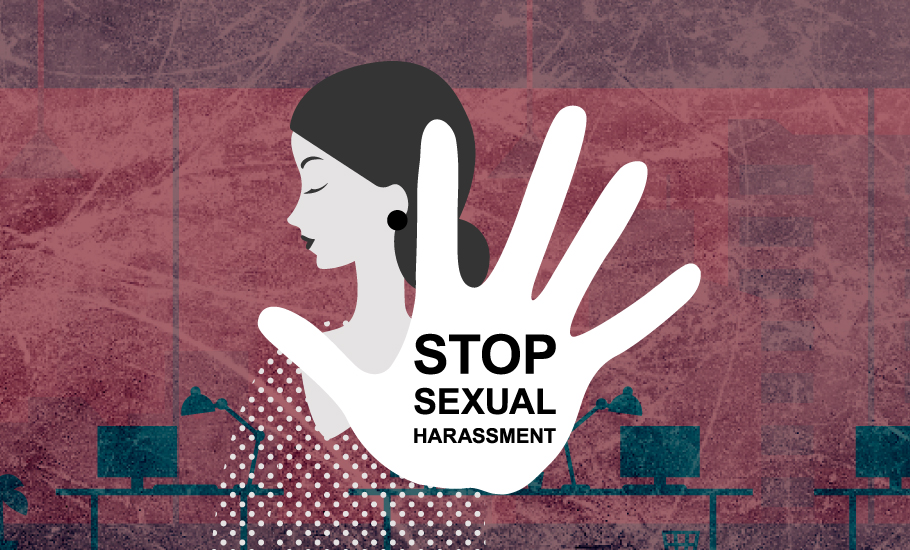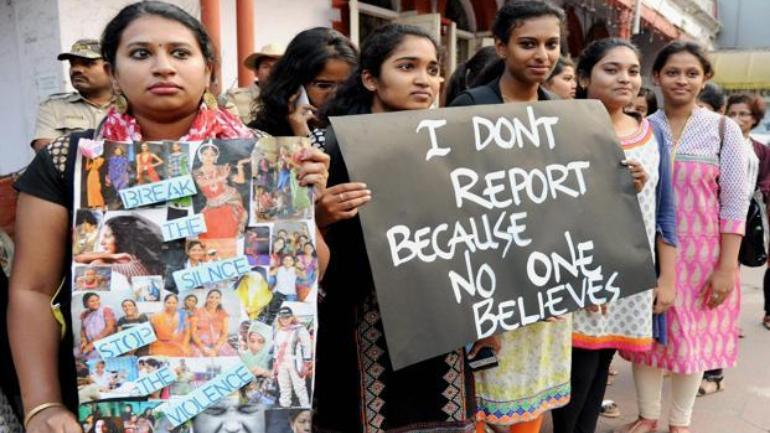
- Home
- India
- World
- Premium
- THE FEDERAL SPECIAL
- Analysis
- States
- Perspective
- Videos
- Sports
- Education
- Entertainment
- Elections
- Features
- Health
- Business
- Series
- In memoriam: Sheikh Mujibur Rahman
- Bishnoi's Men
- NEET TANGLE
- Economy Series
- Earth Day
- Kashmir’s Frozen Turbulence
- India@75
- The legend of Ramjanmabhoomi
- Liberalisation@30
- How to tame a dragon
- Celebrating biodiversity
- Farm Matters
- 50 days of solitude
- Bringing Migrants Home
- Budget 2020
- Jharkhand Votes
- The Federal Investigates
- The Federal Impact
- Vanishing Sand
- Gandhi @ 150
- Andhra Today
- Field report
- Operation Gulmarg
- Pandemic @1 Mn in India
- The Federal Year-End
- The Zero Year
- Science
- Brand studio
- Newsletter
- Elections 2024
- Events
- Home
- IndiaIndia
- World
- Analysis
- StatesStates
- PerspectivePerspective
- VideosVideos
- Sports
- Education
- Entertainment
- ElectionsElections
- Features
- Health
- BusinessBusiness
- Premium
- Loading...
Premium - Events

Despite PoSH, sexual predators continue to lurk in workplaces
Despite POSH Act in place to deal with and deter sexual harassment at workplaces, crimes continue to take place in offices with impunity due to the lack of effective implementation of the law on the ground.

In 2018, a group of four women workers in a garment factory just outside Chennai complained of sexual harassment by their superior. When their action led to a backlash, all the four quit. Almost a year after they moved Madras High Court, the judges in August 2019 ordered the setting up of a local complaints committee (LCC) by the district collector of Kancheepuram. Although the factory...
In 2018, a group of four women workers in a garment factory just outside Chennai complained of sexual harassment by their superior. When their action led to a backlash, all the four quit.
Almost a year after they moved Madras High Court, the judges in August 2019 ordered the setting up of a local complaints committee (LCC) by the district collector of Kancheepuram.
Although the factory owners claimed they had an Internal Committee — which is a requirement as per the Sexual Harassment of Women at Workplace (Prevention, Prohibition and Redressal) Act, 2013 or the PoSH Act for workplaces — the workers allege that the committee was hurriedly formed only after they quit.
The process to set up the LCC has started. However, it is probably too late, for the company is rumoured to be shutting down and the supervisors and managers are contemplating leaving the country.
The case has turned the women’s lives upside down. In the last two years, for Bhavani (name changed), one of the complainants, earning a livelihood has taken a beating.
“From the time we decided to complain till today when we are awaiting a hearing at the LCC in collector’s office, we have only been staring at uncertainties,” she says. “We couldn’t find a job for up to six months after being expelled from work and now I am not sure if the hearing would even begin, though we have been given an appointment with the collector for February 28.”
Bhavani and her colleagues’ struggle highlight the challenges that still remain in the system six years after the promulgation of PoSH Act.
Poor implementation of PoSH
What had remained relatively unknown for a long time suddenly hit the headlines with the 2018 #MeToo movement across spheres.
According to data from the Ministry of Women and Child Development, there has been a rise in the number of sexual harassment cases reported over the years. In 2018 alone, the National Commission for Women (NCW) had received 965 complaints.
In the same year, according to the National Crime Records Bureau (NCRB), the highest number of sexual harassment cases were recorded from Karnataka (89), Maharashtra (75), Jharkhand (30), Delhi (29) and Kerala (29).
As per reports, a group of ministers headed by Union Home Minister Amit Shah has recommended adding new provisions to the Indian Penal Code (IPC) along with changes to the PoSH Act.
Even as the Centre is looking at ways to strengthen the legal framework to prevent sexual harassment at workplaces, there are several inadequacies in the implementation of the PoSH Act.
Sudha Ramalingam, advocate, Madras High Court, stresses on the need for better implementation.

“There is no need for new laws, but authorities need will power to ensure that it is executed. There should be better ways of scrutinising and inspecting the ICs. At the moment, many organisations do not have ICs,” she says, also adding that the ICs are not an alternative to courts.
The intent of creating a better legal framework to address sexual harassment and related issues faced by women, has been in motion for more than a couple of decades, says Dr Saundarya Rajesh, Founder, Avtar Group and one of India’s leading strategists on diversity and inclusion in the workplace.
“Ever since India witnessed double-digit rates of women’s workforce participation, the challenge of providing protection and safety to women has been a bête noire for the powers that be. The very creation of the POSH guidelines (which existed merely as that — a set of guidelines) into a potent Act, was hailed by all of us in the space of women’s careers and livelihood as a milestone event since it was the first time that sexual harassment could be defined as a crime,” she says.
However, she wonders whether the Act really has teeth. “India is characterised by its diversity — by the different segments and cohorts of women who populate it. The creamy layer of women professionals, who live and work for some of India’s top employers in the metros, have witnessed a change. The Act has made them bolder, has given them access to the IC, has enabled them to raise their voices if they feel even slightly uncomfortable,” she says.
“However, such is not the case with women working for small- and medium-sized businesses,” she adds, noting that women here fear for safety as the POSH Act is almost non-existent.
“Women in these heartlands of India, still wrap their sarees and dupattas tightly around their bodies as they work, in supposed protection against prying eyes,” she says.
Sujatha Mody, president, Penn Thozhilaalar Sangam (Women Workers Association), who pushed the case of the four women at the garment factory, says that not just the IC, but also at the government level, the LCC which is the responsibility of the district collector, hasn’t been constituted.
“The problem is that it is being treated as a welfare act and not as an employment act. Unless the labour department steps in to implement it effectively across organisations, there is no scope for justice within it and women will continue to be criminalised, as in the case of the four women,” she observes.
Not enough training
While the Ministry of Women and Child Development has been conducting capacity building on sexual harassment through empanelled institutions and organisations, there continues to be a lack of enough knowledge among members of the Internal Committees.
Abhaya Tatavarthi, lead consultant, PoSH, Parity Consultant, says that many committees are ill-equipped. “The members are unaware of the law, there is an external member chosen arbitrarily and the whole investigation is at times, handled unfairly,” she observes.

While there are resource persons and empanelled organisations like Parity Consultants imparting training in companies, there is no mechanism yet in place to ascertain the qualifications of the individuals in the committees.
“I also think that the committee should have guidelines on how they should be selected and how they should be handling complaints,” she says. “The Act also mandates ICs to file annual reports, including details about the cases of sexual harassment at their workplace but there is not much clarity regarding this among parties concerned. While there are training held regularly for improving awareness among employees regarding the issue and law, training the committee members rarely happens.”
An audit mechanism with penalties for non-compliance can ensure better implementation, suggests Saundarya. “Such an audit followed by a stifling penalty for non-conformance will drive commitment towards this. Regardless of gender, all employees deserve to feel safe and secure in workplaces. This will happen only when the top management adopts an uncompromising culture of safety in their workplaces,” she demands.
Inconclusive to several repercussions—outcomes vary
A source from the Social Welfare Department in Tamil Nadu admits that the absence of ICs has hampered the expedition of complaints.
“Even the sexual harassment electronic box that is supposed to provide a single-window access to complaints from women across spheres is ineffective, in the absence of ICs, as these cases are ultimately referred to the ICs in respective companies,” the source adds.
There are inherent challenges of the system PoSH envisages. Soujanya Vishwanath, co-founder of Pink Ladder, which has been sensitising and creating awareness across sectors, reveals that in several cases, setting up of an IC is a mere formality.
“In smaller companies, they refuse to take up issues and provisions of the law seriously; the members are chosen randomly and there is no training for them. Such ad hoc committees often do not have an external member. The employers resist having committees because the employers wonder if they are equipped to handle the cases, if they are reported,” she says.
In the case of the four garment factory workers, the accused, the floor in-charge, had earlier been sacked for harassing women employees but was reinstated again earlier in 2018, months before the four women complained about him.
Such arbitrary actions and response to complaints are common, as Soujanya observes that the action by companies are also linked to the person’s productivity.
Even as the ICs have the responsibility to route the cases to the police, if there is a need for it, many wouldn’t do it because the brand value of the company gets affected.
“We have seen very few cases going to the police, therefore,” says Soujanya. “On the other hand, if the complaint is against the employer, the chances of the committees taking action against the person is remote.”
With more people moving towards bigger cities from tier-2 cities, there is little awareness about what constitutes sexual harassment, she says. “The awareness should start during college.”
